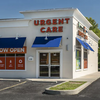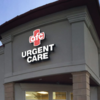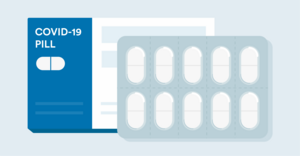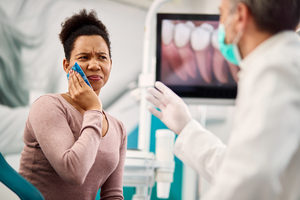Find Hepatitis test
in Newark, DE.
Own a clinic? Add your location.
Help patients book appointments with you on Solv. It's free!
20 instant-book locations

ChristianaCare- GoHealth Urgent Care, Healthcare Center Christiana
ChristianaCare- GoHealth Urgent Care

ChristianaCare- GoHealth Urgent Care, Glasgow
ChristianaCare- GoHealth Urgent Care

ChristianaCare- GoHealth Urgent Care, Newark
ChristianaCare- GoHealth Urgent Care

ChristianaCare- GoHealth Urgent Care, STAR Campus
ChristianaCare- GoHealth Urgent Care

ChristianaCare- GoHealth Urgent Care, Bear
ChristianaCare- GoHealth Urgent Care

ChristianaCare- GoHealth Urgent Care, Kirkwood Highway
ChristianaCare- GoHealth Urgent Care

ChristianaCare- GoHealth Urgent Care, Elkton
ChristianaCare- GoHealth Urgent Care

ChristianaCare- GoHealth Urgent Care, New Castle
ChristianaCare- GoHealth Urgent Care

ChristianaCare- GoHealth Urgent Care, Greenville
ChristianaCare- GoHealth Urgent Care

ChristianaCare- GoHealth Urgent Care, North East
ChristianaCare- GoHealth Urgent Care

AFC Urgent Care, Kennett Square
AFC Urgent Care

AFC Urgent Care, Pennsville
AFC Urgent Care

ChristianaCare- GoHealth Urgent Care, Fairfax
ChristianaCare- GoHealth Urgent Care

ChristianaCare- GoHealth Urgent Care, Middletown
ChristianaCare- GoHealth Urgent Care

AFC Urgent Care, West Chester
AFC Urgent Care

AFC Urgent Care, Downingtown
AFC Urgent Care

AFC Urgent Care, Frazer
AFC Urgent Care

ChristianaCare- GoHealth Urgent Care, Smyrna
ChristianaCare- GoHealth Urgent Care

AFC Urgent Care, Woodbury
AFC Urgent Care

CityLife Health, Cobbs Creek
CityLife Health
Own a clinic? Add your location.
Help patients book appointments with you on Solv. It's free!
About Hepatitis test
Who should get tested for hepatitis?
Anyone who believes they may have been exposed to the hepatitis virus should seek testing. This includes individuals who have shared needles or other drug paraphernalia, had sexual contact with an infected person, or have traveled to areas with high rates of hepatitis. Additionally, those born between 1945 and 1965, or who have a liver disease, should also get tested, according to the CDC.
Importance of getting tested
Getting tested for hepatitis is crucial as it allows for early detection and treatment, which can prevent liver damage and other health complications. Moreover, knowing your status can help prevent the spread of the disease to others.
Hepatitis testing options in Newark, DE:
Urgent care and walk-in clinics
Urgent care centers, such as Optum Urgent Care in Woodbury, NJ, and Live Urgent Care in King of Prussia, PA, offer hepatitis testing. These facilities are highly rated and provide convenient same-day and next-day appointments, which can be booked through Solv’s website and mobile app.
Primary care providers
Primary care providers in Newark, DE, and surrounding areas also offer hepatitis testing. It's important to discuss your risk factors with your healthcare provider to determine the need for testing.
Free STD testing and community health centers
Community health centers in Newark and nearby counties offer free or low-cost hepatitis testing. These centers provide an affordable option for those without insurance or who are underinsured.
At-home testing
At-home testing kits for hepatitis are also available. These kits provide a convenient and private option for those who prefer to test at home.
Prevalence of hepatitis in Newark
The prevalence of hepatitis in Newark, DE, is in line with the national average, according to the CDC. However, it's important to note that rates can vary based on various factors, including age, sex, and lifestyle habits.
Risk factors related to hepatitis in Newark
Risk factors for hepatitis in Newark include unprotected sex, sharing needles or other drug paraphernalia, and having a blood transfusion or organ transplant before 1992. Additionally, those with a history of liver disease or who were born between 1945 and 1965 are at an increased risk.
Other STDs in Newark
In addition to hepatitis, other STDs such as gonorrhea, chlamydia, HIV, and syphilis are also prevalent in Newark. It's important to get tested for these diseases as well, as they can often occur concurrently. Regular testing can help prevent the spread of these diseases and lead to early treatment.
Solv has strict sourcing guidelines and relies on peer-reviewed studies, academic research institutions, and medical associations. We avoid using tertiary references.
Related Searches
DOT Exam in Newark
Ear Wax Removal in Newark
Sports Physicals in Newark
A1C Test in Newark
Allergy Testing in Newark
Basic Metabolic Panel in Newark
CMP Test in Newark
Diabetes Test in Newark
Diagnostic Test in Newark
H Pylori Test in Newark
Hepatitis test in Newark
Lab Tests in Newark
Mono Test in Newark
Pregnancy Test in Newark
Pulmonary Function Test in Newark
RSV Test in Newark
STD Testing in Newark
Strep Test in Newark
TB Test in Newark
Thyroid Test in Newark
Vitamin D Test in Newark
Aetna Urgent Care
Blue Cross Blue Shield Urgent Care
Cigna Urgent Care
COVID-19
Flu
United Health Urgent Care
» All services in NewarkFind hepatitis test
Nearby cities
Everyday Healthcare, Simplified
Expert advice to help you live your best life







